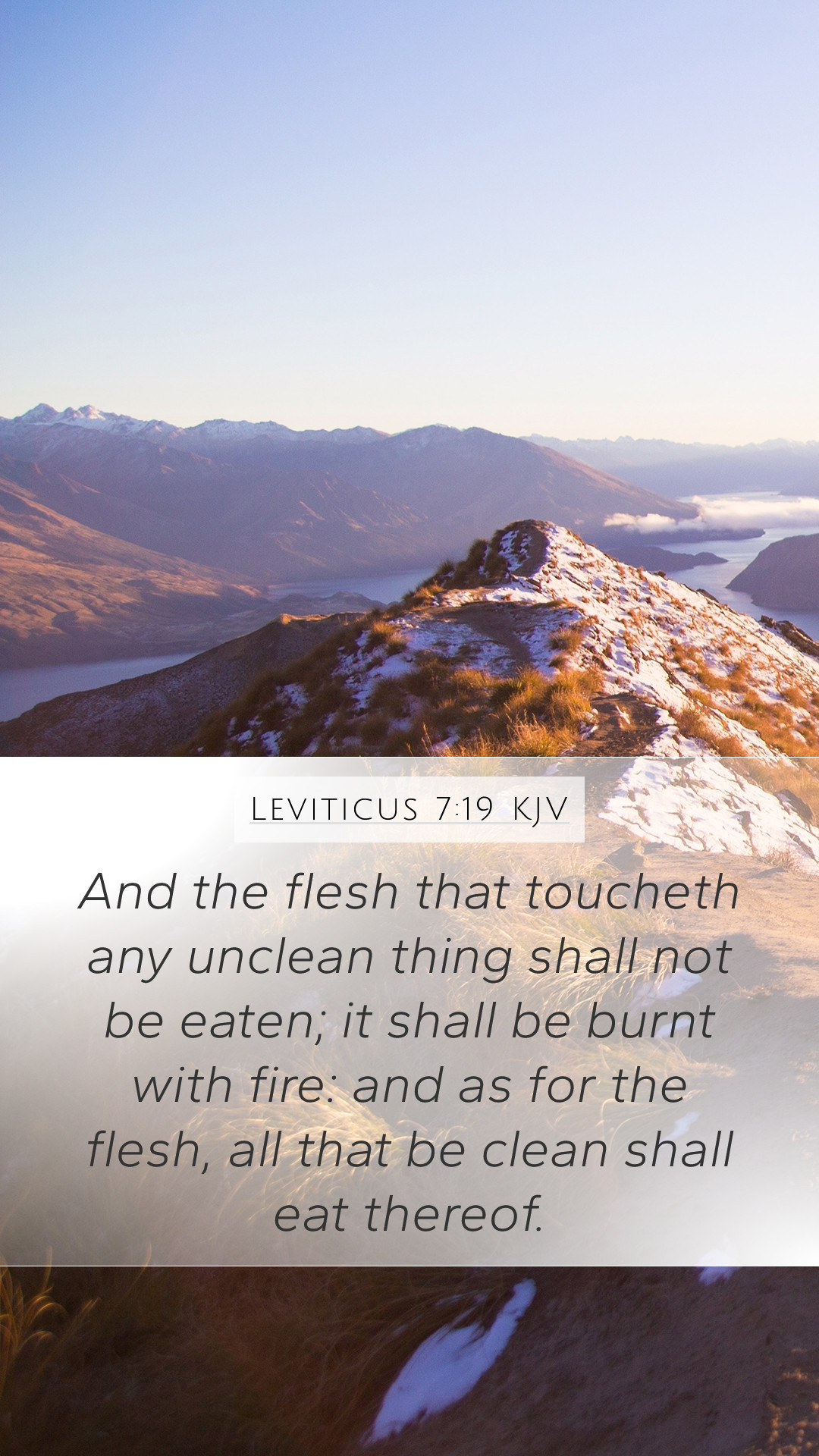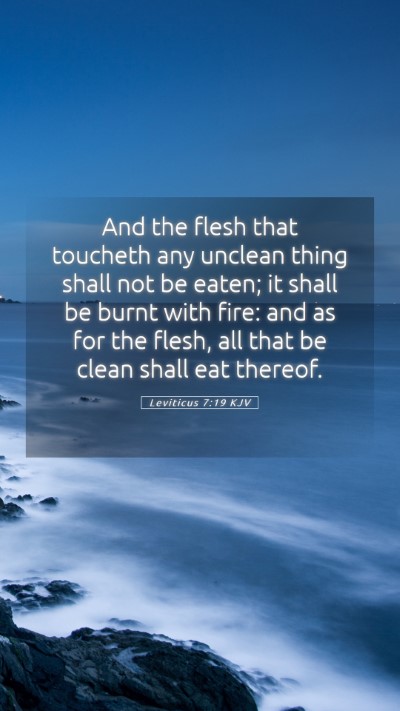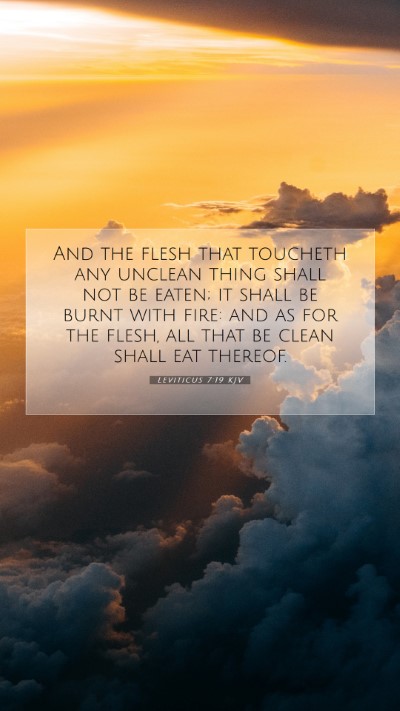Understanding Leviticus 7:19
The verse Leviticus 7:19 states: “And the flesh that toucheth any unclean thing shall not be eaten; it shall be burnt with fire: and as for the flesh, all that be clean shall eat thereof.” This passage is part of the Priestly Code which establishes laws regarding sacrificial offerings and dietary restrictions.
Bible Verse Commentary
This verse emphasizes the importance of maintaining ceremonial purity, which was critical for the Israelites in their religious observances. Below, we summarize insights from various public domain commentaries on this verse.
-
Matthew Henry: Henry comments on the idea that the children of Israel were to maintain their holiness. He notes that the sacrifices must be offered in a state of ceremonial cleanliness and under the right conditions. The mixing of the holy with the unclean is prohibited, reinforcing God's expectations for His people.
-
Albert Barnes: Barnes explains that the reference to flesh touching unclean things is a direct warning against contamination. This highlights the seriousness of keeping the sacrificial offerings pure, as only what is clean can approach God's altar. He relates this to the wider principles of holiness in the lives of believers today.
-
Adam Clarke: Clarke delves into the ritualistic laws of the Israelites, describing the symbolism of the sacrificial system. He posits that these laws serve a dual purpose: they protect the community from spiritual contamination and serve as a continuous reminder of God's holiness.
Significance of the Verse
This verse serves as a vital reminder for believers to consider the concept of holiness and purity in their spiritual practices. In examining Leviticus 7:19, we gain:
-
Insight into God's expectations: The call to maintain cleanliness shows that God desires His people to be distinct and set apart from the surrounding nations.
-
Cleansing and purity concepts: Understanding that only what is clean can be offered to God emphasizes the concept of spiritual cleanliness, which can be applied to one's life today.
-
Foreshadowing of Christ: Many scholars suggest that these purity laws foreshadow Jesus Christ, who embodies ultimate holiness and purity, thus allowing believers to come into the presence of God.
Application of Leviticus 7:19
Applying this verse to daily life involves recognizing the spiritual implications of what it means to be holy and how to maintain purity in one's actions and thoughts. This understanding can inform discussions in:
- Bible study groups focused on the laws of the Old Testament.
- Online Bible study platforms that delve into the significance of sacrificial systems.
- Bible study guides designed to explore the ritualistic practices within the context of modern faith.
Cross References
Related scripture that enriches the understanding of Leviticus 7:19 includes:
- Leviticus 11:4-8: Discusses dietary laws that define clean and unclean animals.
- Isaiah 52:11: Encourages Israel to depart from unclean things.
- 2 Corinthians 6:17: Chronicles the call for Christians to be separate from unclean practices.
Conclusion
In conclusion, Leviticus 7:19 serves as a profound reflection on the themes of holiness and cleanliness in a religious context. Engaging with this verse through various commentaries allows believers to gain deeper insights into its meaning and application in their spiritual journey.


